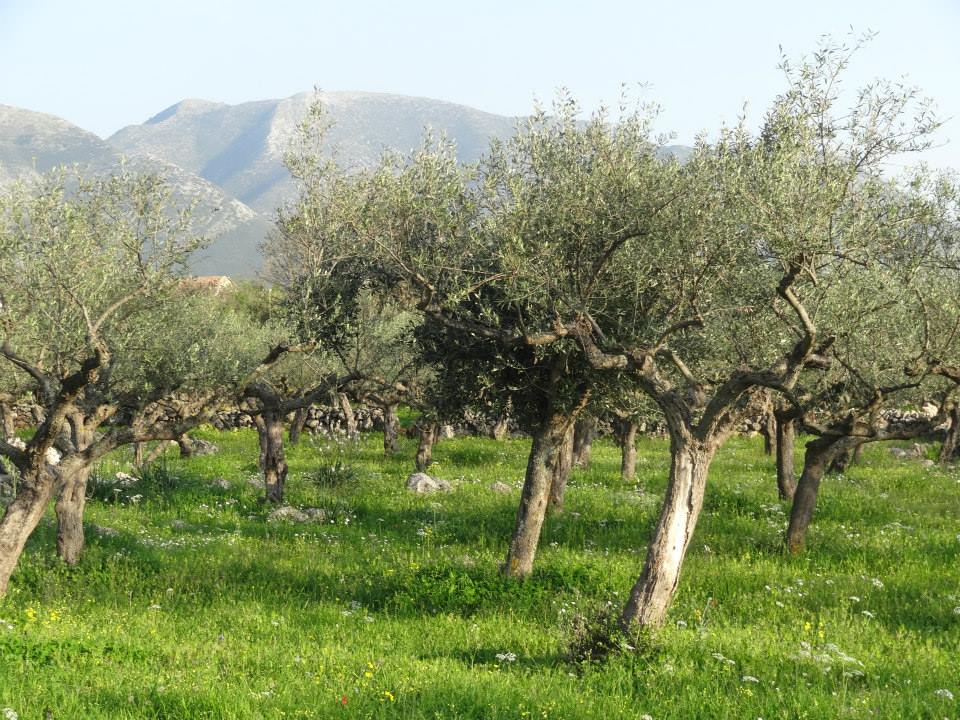This Time of Year
West Mani is known for quality olive oil and is most valued around the world. In most of the Peloponnese but more specifically in Mani the rough and uneven terrain makes harvesting with large machinery impossible. Therefore olive harvesting is still done the traditional way. When the olives are ripe and begin to change colour from green to a dark purple the harvest begins. This can start from as early as October and last until as late as February, depending on the environment and location of the olive grove. Large nets are laid down around the trees to catch the falling olives as ladders, sticks, saws and a small rotating rake like machines called “Κoy Πε Πε” are used to shake the olives down from the branches. Once the trees are bare, the olives are then collected by hand into hessian bags for transportation to the mill.

Here the bags are emptied onto a conveyer belt and fed through to an exhaust fan, where the leaves and small twigs are sucked up from the olives. The olives are then cleaned before traveling to a vat with large millstones where they are crushed into a thick paste. In the early days, donkeys or horses were used to pull the stone wheels around. In more modern factories this step can also be done with metal tooth grinders, or various kinds of hammer mills. When the paste is ready it is then moved into a mixer where it is prepared for pressing in a process called malaxing.
The paste is mixed for 20 to 45 minutes to allow the oil droplets to form together, as well as make sure the olives are well grounded. Longer mixing times may increase the production of oil however the increase of oxidation decreases the quality and shelf life of the final product. In an old style mill the paste from mixer is laid out on layered mats or disks made of hemp, then pressed to release the liquids from the paste. More modern factories may have similar process using synthetic fiber mats in addition to a hydraulic press. Other factories, have abandoned traditional methods and use industrial malaxers that are horizontal troughs with spiral mixing blades.
In these factories the paste from the malaxers is passed into a two or three-phased decanting process. This decanter separates the oil and vegetable water from the paste, this then needs to pass through a final centrifugation process to separate the oil from the vegetation water. Whereas in a traditional mill press the liquid that is released from the press passes through one centrifuge and filter process. This is where the term “first press” is used in the selling of oil, because the olives are only pressed once in the traditional way it does not yield as much oil as an industrial factories. Therefore, it is considered more ‘natural’ and valued more on the market. Once the centrifuge process is finished the oil is then put into steel containers to be stored, from there it can be bottle and distributed.
Want to know more?
Visit any of our local factories to see first-hand the process and and taste the oil that makes West Mani great.